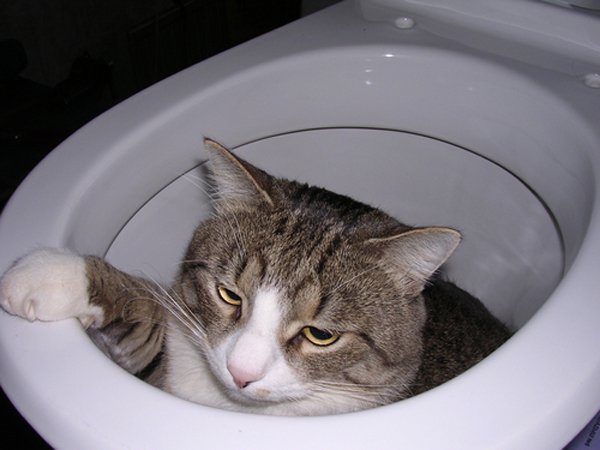The publisher is making a few great observations related to How to Dispose of Cat Poop and Litter Without Plastic Bags as a whole in this great article down the page.

Intro
As pet cat proprietors, it's important to bear in mind exactly how we dispose of our feline good friends' waste. While it might seem convenient to purge pet cat poop down the commode, this practice can have harmful repercussions for both the environment and human health and wellness.
Environmental Impact
Flushing feline poop presents unsafe virus and bloodsuckers right into the water supply, posturing a substantial danger to water environments. These pollutants can adversely affect aquatic life and concession water high quality.
Health Risks
In addition to ecological problems, purging feline waste can likewise position health and wellness dangers to people. Feline feces may contain Toxoplasma gondii, a parasite that can create toxoplasmosis-- a possibly extreme health problem, especially for pregnant ladies and individuals with weakened body immune systems.
Alternatives to Flushing
The good news is, there are much safer and much more responsible means to take care of feline poop. Think about the following options:
1. Scoop and Dispose in Trash
The most common approach of taking care of pet cat poop is to scoop it into a naturally degradable bag and toss it in the garbage. Be sure to make use of a specialized trash scoop and take care of the waste immediately.
2. Use Biodegradable Litter
Opt for eco-friendly feline litter made from products such as corn or wheat. These litters are eco-friendly and can be safely disposed of in the garbage.
3. Bury in the Yard
If you have a lawn, consider burying cat waste in an assigned location far from vegetable yards and water resources. Be sure to dig deep sufficient to prevent contamination of groundwater.
4. Set Up a Pet Waste Disposal System
Invest in a pet garbage disposal system particularly made for cat waste. These systems make use of enzymes to break down the waste, lowering odor and ecological effect.
Verdict
Liable animal possession expands past supplying food and sanctuary-- it also includes proper waste management. By avoiding purging feline poop down the toilet and going with alternative disposal techniques, we can lessen our ecological footprint and safeguard human health and wellness.
Why You Should Never Flush Cat Poop Down the Toilet
A rose by any other name might smell as sweet, but not all poop is created equal. Toilets, and our sewage systems, are designed for human excrement, not animal waste. It might seem like it couldn’t hurt to toss cat feces into the loo, but it’s not a good idea to flush cat poop in the toilet.
First and foremost, assuming your cat uses a litter box, any waste is going to have litter on it. And even the smallest amount of litter can wreak havoc on plumbing.
Over time, small amounts build up, filling up your septic system. Most litter sold today is clumping; it is made from a type of clay that hardens when it gets wet. Ever tried to scrape old clumps from the bottom of a litter box? You know just how cement-hard it can get!
Now imagine just a small clump of that stuck in your pipes. A simple de-clogger like Drano isn’t going to cut it. And that means it’s going to cost you big time to fix it.
Parasitic Contamination
Believe it or not, your healthy kitty may be harboring a nasty parasite. Only cats excrete Toxoplasma in their feces. Yet it rarely causes serious health issues in the cats that are infected. Most people will be fine too if infected. Only pregnant women and people with compromised immune systems are at risk. (If you’ve ever heard how women who are expecting are excused from litter cleaning duty, Toxoplasma is why.)
But other animals may have a problem if infected with the parasite. And human water treatment systems aren’t designed to handle it. As a result, the systems don’t remove the parasite before discharging wastewater into local waterways. Fish, shellfish, and other marine life — otters in particular — are susceptible to toxoplasma. If exposed, most will end up with brain damage and many will die.
Depending on the species of fish, they may end up on someone’s fish hook and, ultimately on someone’s dinner plate. If that someone has a chronic illness, they’re at risk.
Skip the Toilet Training
We know there are folks out there who like to toilet train their cats. And we give them props, it takes a lot of work. But thanks to the toxoplasma, it’s not a good idea.

I recently found that content about How to Dispose of Cat Poop and Litter Without Plastic Bags while doing research the web. I beg you take the time to share this blog if you appreciated it. Many thanks for your time. Visit us again soon.
Call Today